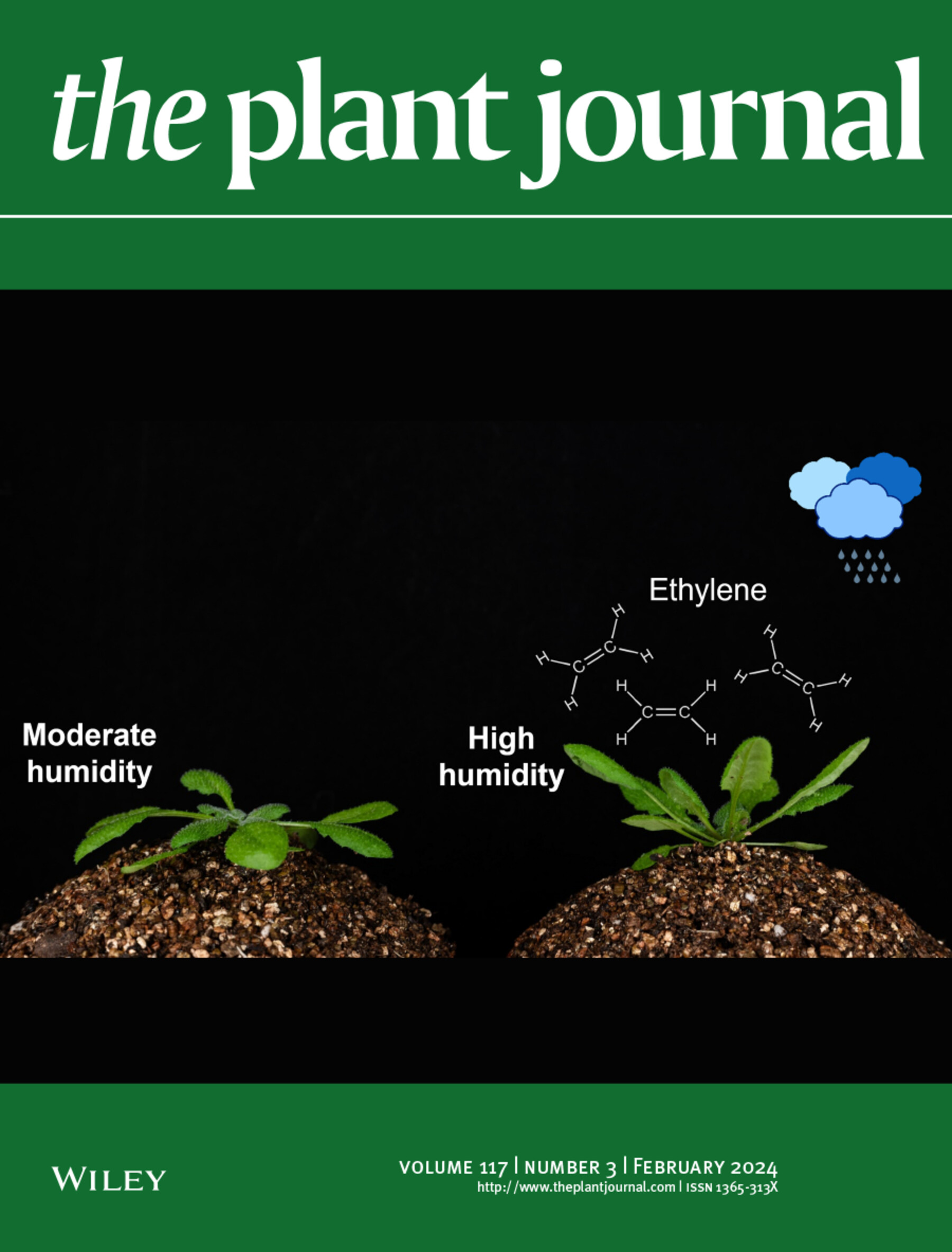摘要
植物黄酮醇的主要作用是紫外线辐射吸收剂、活性氧清除剂和植物黄酮素,它们有助于提高植物的生物和非生物胁迫耐受性。香蕉(Musa acuminata)是一种草本单子叶植物,也是重要的水果作物,它在不同器官(包括可食用的果肉)中积累黄酮醇衍生物。虽然不同器官中的黄酮醇含量差异很大,但香蕉中黄酮醇合成的转录调控分子机制尚不清楚。在此,我们对三个SG7-R2R3 MYB转录因子(MaMYBFA1、MaMYBFA2和MaMYBFA3)和热休克转录因子(MaHSF11)进行了表征,以阐明香蕉中黄酮醇生物合成转录调控的分子机制。MaMYBFA正向调控黄酮醇合成酶2(MaFLS2),下调MaFLS1。我们发现这些转录因子是黄酮醇合成的弱调控因子。过表达MaHSF11可提高黄酮醇含量,尤其是杨梅素的含量,并促进黄酮醇B环羟基化,这有助于黄酮醇衍生物的多样性。MaHSF11在体外和体内都能直接与MaFLS1和类黄酮3′,5′-羟化酶1(MaF3′5′H1)启动子相互作用。MaHSF11 可直接激活 MaDREB1 的表达,而已知 MaDREB1 可促进香蕉果实的耐寒性。总之,我们的研究阐明了香蕉中黄酮醇合成的调控机制,并提出了基因优化的可能目标,以提高这种全球重要水果作物的营养价值和抗逆性。

Plant flavonols act primarily as ultraviolet radiation absorbers, reactive oxygen species scavengers, and phytoalexins, and they contribute to biotic and abiotic stress tolerance in plants. Banana (Musa acuminata), an herbaceous monocot and important fruit crop, accumulates flavonol derivatives in different organs, including the edible fruit pulp. Although flavonol content varies greatly in different organs, the molecular mechanisms involving transcriptional regulation of flavonol synthesis in banana are not known. Here, we characterized three SG7-R2R3 MYB transcription factors (MaMYBFA1, MaMYBFA2, and MaMYBFA3) and heat shock transcription factor (MaHSF11), to elucidate the molecular mechanism involved in transcriptional regulation of flavonol biosynthesis in banana. MaMYBFA positively regulates flavonol synthase 2 (MaFLS2) and downregulates MaFLS1. We show these transcription factors to be weak regulators of flavonol synthesis. Overexpression of MaHSF11 enhances flavonol contents, particularly that of myricetin, and promotes flavonol B-ring hydroxylation, which contributes to the diversity of flavonol derivatives. MaHSF11 directly interacts with the MaFLS1 and flavonoid 3′,5′-hydroxylase1 (MaF3′5′H1) promoters, both in vitro and in vivo. MaHSF11 activates the expression of MaDREB1 directly, which is known to promote cold and chilling tolerance in banana fruit. Overall, our study elucidates a regulatory mechanism for flavonol synthesis in banana and suggests possible targets for genetic optimization to enhance nutritional value and stress responses in this globally important fruit crop.

 求助内容:
求助内容: 应助结果提醒方式:
应助结果提醒方式:


